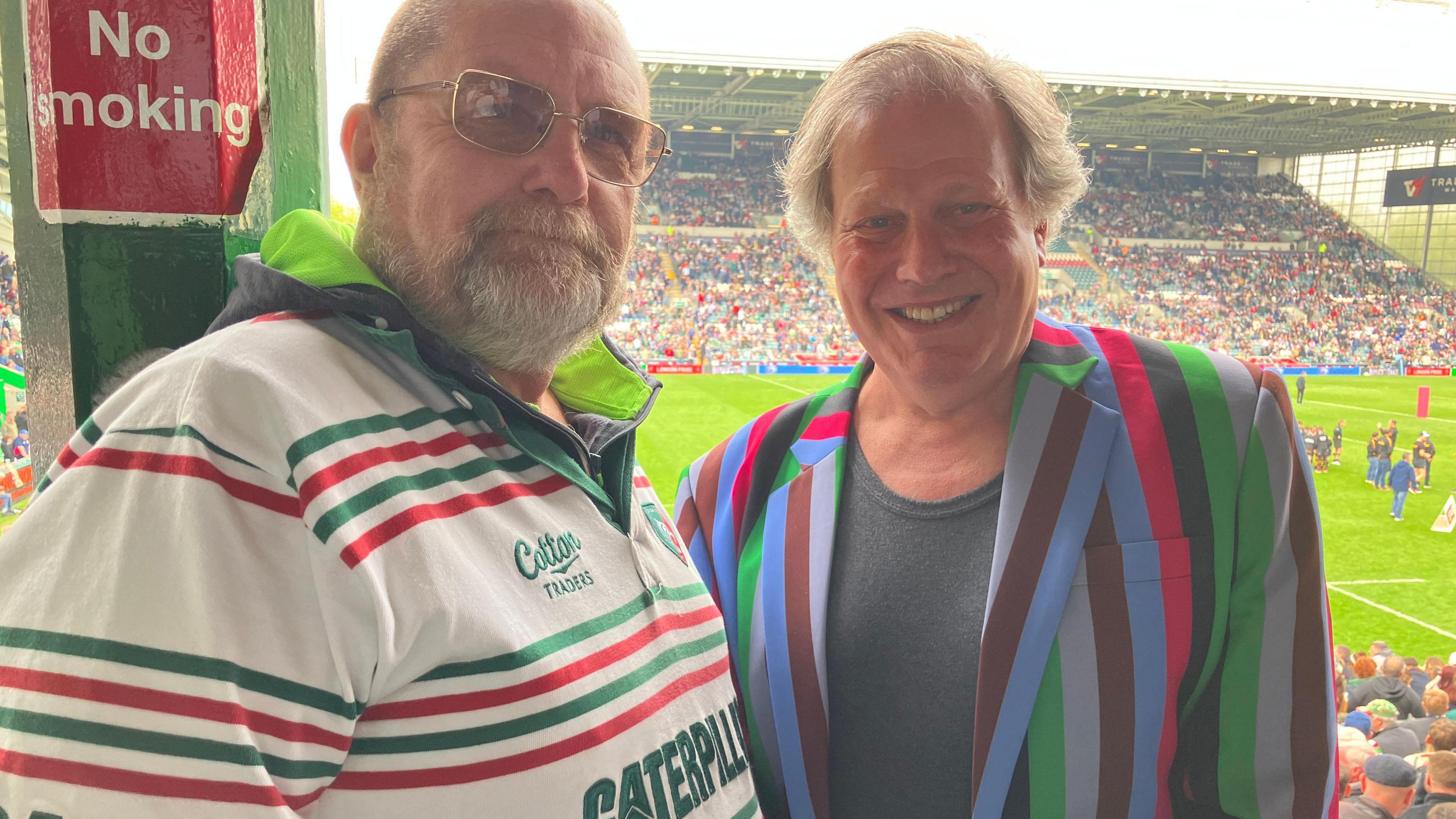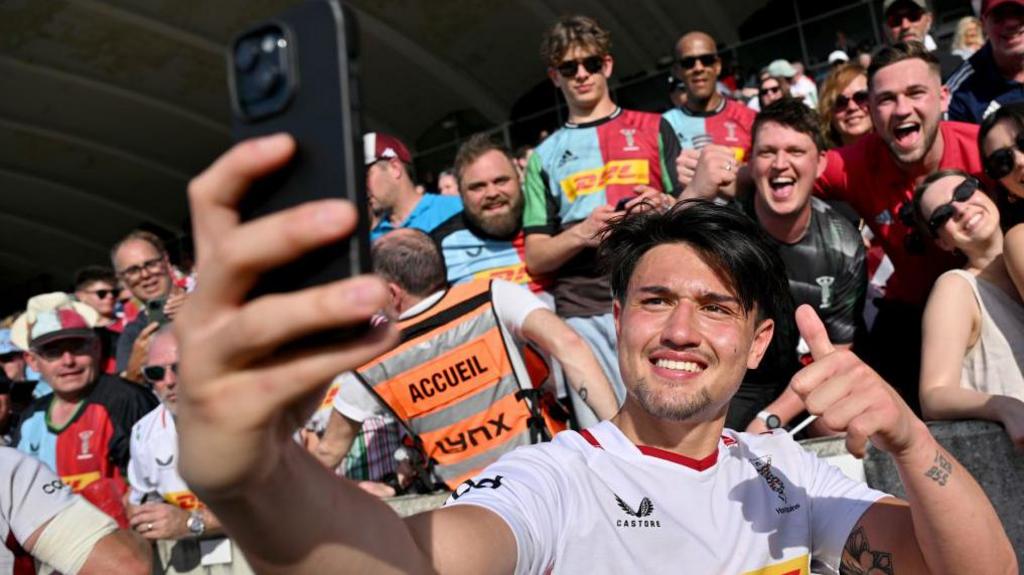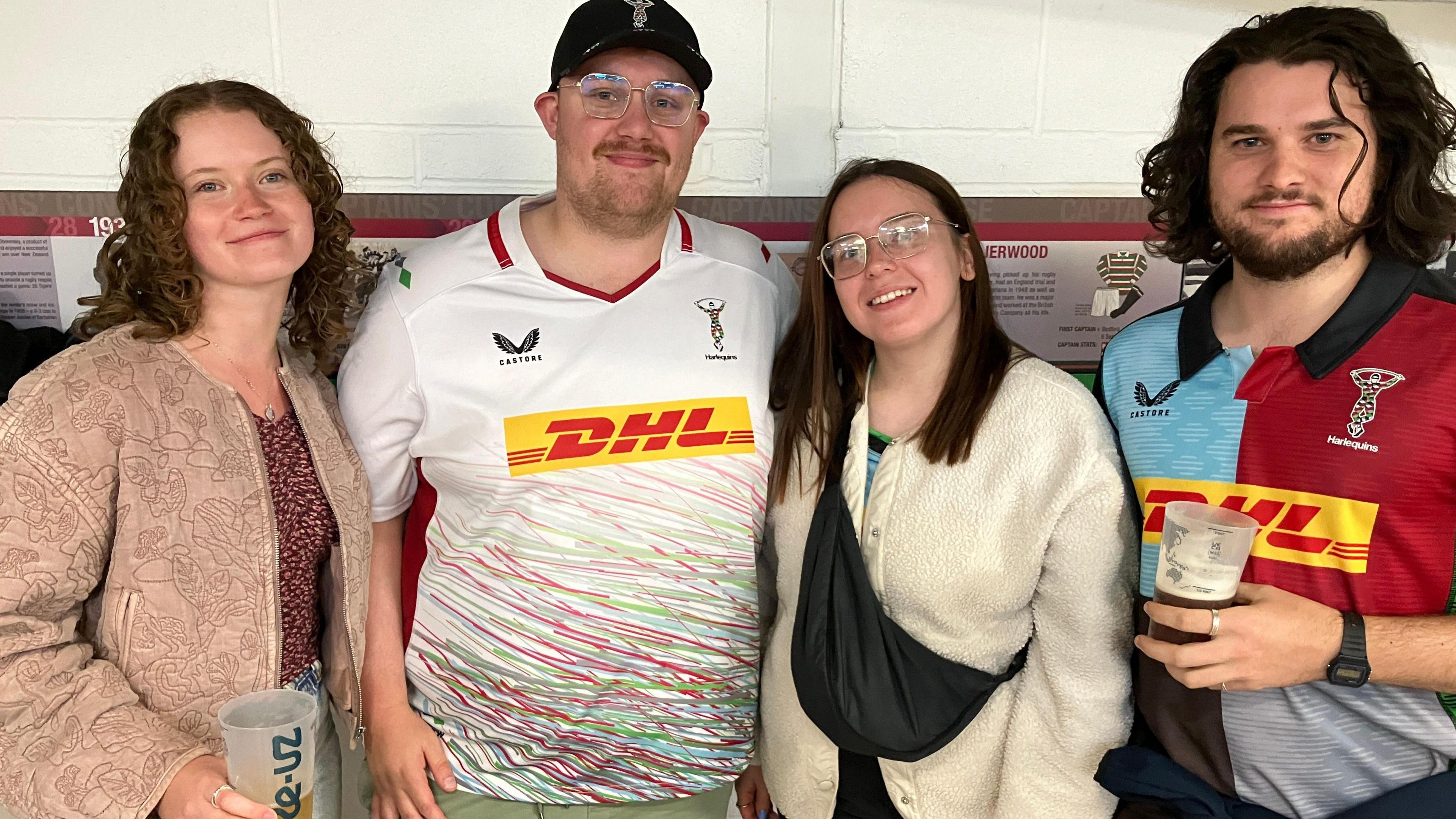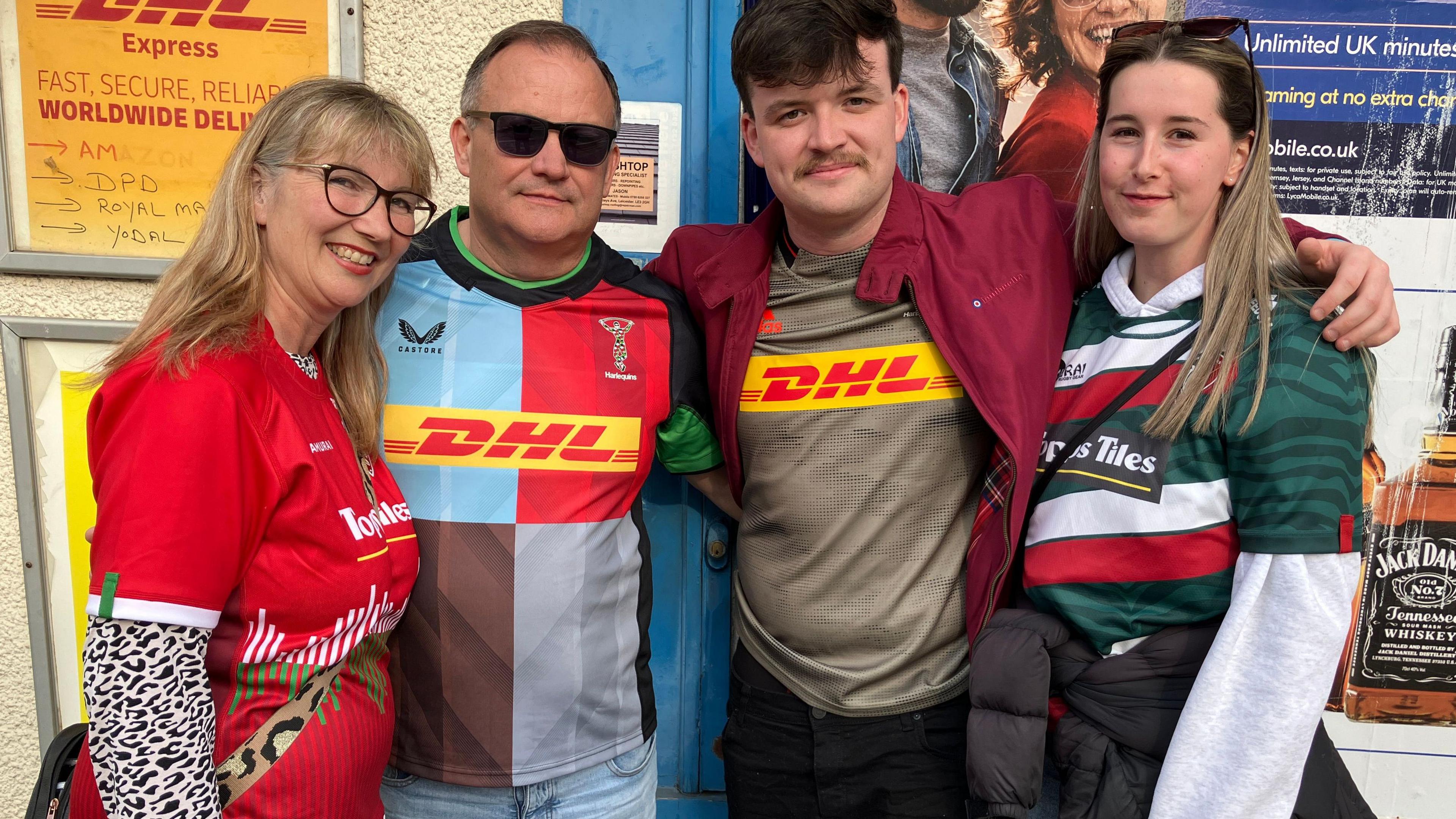
Inside Rugby ‘ Away End: We Don’t Want to Be Like Football, But…
How Harlequins Fans Are Shaping Rugby First Steps Towards an ‘Away End’ Culture
It was one of those Saturday afternoons where everything that could cause a stir, did. At Mattioli Woods Welford Road, the referee initially allowed a Leicester try despite a clear knock-on. Harlequins’ Cameron Anderson lay concussed, yet somehow found himself the recipient of a red card. England team-mates Alex Dombrandt and Ollie Chessum even squared up to each other.
But among the spectators? Just a ripple of frustration, and then a return to polite conversation. Rugby’s much-talked-about ‘away end’ experiment – the keywords of the day – was being put to the test, but it remained, for now, a very rugby affair.
In the stands, Richard Buck, decked out in a proudly striped Harlequins blazer, and Phil Ellis, a Leicester Tigers season ticket holder for 16 years, sat side by side. There were no insults hurled, no chants of abuse. Just a shared chuckle over the chaos unfolding on the pitch.
“I’ve been a bit ambushed by all this today,” Ellis admitted, with a grin. “Normally you get the odd away fan scattered around, but today it’s properly concentrated. Still, they’re all good lads.”
‘Away Ends’ in Rugby: A New Chapter, or Just an Evolution?

Phil Ellis (left) and Richard Buck stood next to each other with Welford Road in the background
When Premiership Rugby announced it was trialling ‘away ends’ — that ever-loaded keywords phrase — many raised eyebrows. Was rugby about to drift towards football’s more tribal, sometimes hostile matchday atmosphere?
The reality has been far more gentle.
For starters, these are not ‘away ends’ in the football sense. There’s no strict segregation. No pyrotechnics. No lines of stewards separating fans. Visitors still have the freedom to sit among home supporters if they choose.
Secondly, travelling supporters have always carved out their own spaces. Groups like Quinssa, Harlequins’ famously active supporters’ association, have been organising block bookings at away grounds for years, particularly during European campaigns where ticket offices are more flexible.
Their massed ranks played a crucial role in Harlequins’ famous comeback against Bristol in the 2021 semi-final at Ashton Gate, singing themselves hoarse to inspire their team from the brink.
So, this isn’t brand new. It’s just rugby, trying something slightly different — formally recognising the desire for a home away from home.
Building the Atmosphere: ‘We Don’t Want to Be Like Football, But…’

Marcus Smith takes a selfie with travelling fans after Harlequins‘ Champions Cup match away to Bordeaux-Begles in 2024
Leicester chief executive Andrea Pinchen, a firm supporter of the trial, believes it’s a step forward.
“We want to be innovative. We want to try new things. It adds to the atmosphere when fans of both sides are getting louder and louder,” she said.
Harlequins’ CEO Laurie Dalrymple, with his background at Premier League side Wolves, sees the bigger picture too.
“It’s not the silver bullet to fix all of rugby’s challenges,” he admitted. “But it’s about offering a different kind of experience — something fresh to help us diversify and grow our audience.”
That need to grow rugby’s audience was a recurrent theme among fans.
Megan Schroeder, a passionate Harlequins fan, summed it up simply: “When you’re with your own fans, you chant more, you sing more. There’s more energy.
“If you’re surrounded by opposition fans, you can end up just sitting there quietly. We don’t want rugby to turn into football — but a bit of that competitive edge? Definitely.”
Brandon Wells agreed. “It makes you more inclined to travel if you know you’ll be sat with people like you, singing the same songs. Our game needs to evolve or it risks fading away. This is a step in the right direction.”
Tradition Versus Innovation: Mixed Feelings Among the Fans

Harlequins fans pose together holding pints of beer
Not everyone was convinced, though.
Old-school supporters like Nick Baker prefer the traditional mingling that rugby has long prided itself on.
“I like mixing. Having a bit of banter with the opposition. Rugby’s never needed strict segregation,” Nick said. “It’s not like football where you have to keep fans apart.”
His brother Joel, however, appreciated the option: “If you support a club but live elsewhere, it’s nice to find your people when they visit your town. To hear your home accents, to feel part of it again.”
The match itself followed a script all too familiar to travelling fans. As Leicester stretched away in the second half, the Quins fans’ early chants of “C’mon you Quins!” and cheers for Marcus Smith grew quieter. With only 500 or so making the trip to a 25,000-capacity ground, their voices, however spirited, were always going to struggle to dominate.
At last week’s first trial, Gloucester’s travelling fans had a louder, cheekier impact at Saracens’ sparsely attended Stonex Stadium — their chants ribbing London life and Saracens fly-half Fergus Burke left an unmistakable mark on the atmosphere.
Players, too, seem to like the idea. Harlequins flanker Will Evans publicly applauded the idea, saying the away support could lift teams in tough games. Leicester’s players, according to Pinchen, have also noticed the difference when they’re on the road.
What Next for Rugby’s ‘Away End’ Evolution?

Harlequins and Leicester fans pose for a portrait
So, where does rugby’s ‘away end’ — those important keywords again — experiment go from here?
The two-match trial will be reviewed by Premiership Rugby ahead of next season’s rebrand. Some clubs and traditionalists remain sceptical, concerned about losing rugby’s uniquely cordial culture.
But Saturday’s evidence suggested otherwise. The new system didn’t spark violence or nastiness. It simply gave fans more choice: a chance to come together more visibly, to make their voices heard.
And maybe, just maybe, it’s the kind of gentle evolution rugby needs — embracing a bit of football’s competitive buzz without losing its soul.
As Megan Schroeder so perfectly put it: “We don’t want to be like football. But we do want to feel like we’re part of something bigger when we travel. And that’s what the away end gives us.”






















































There are no comments yet. Be the first to comment!